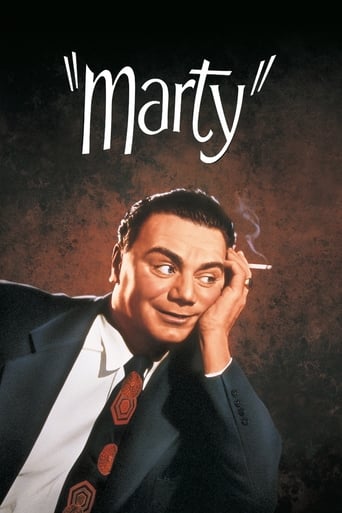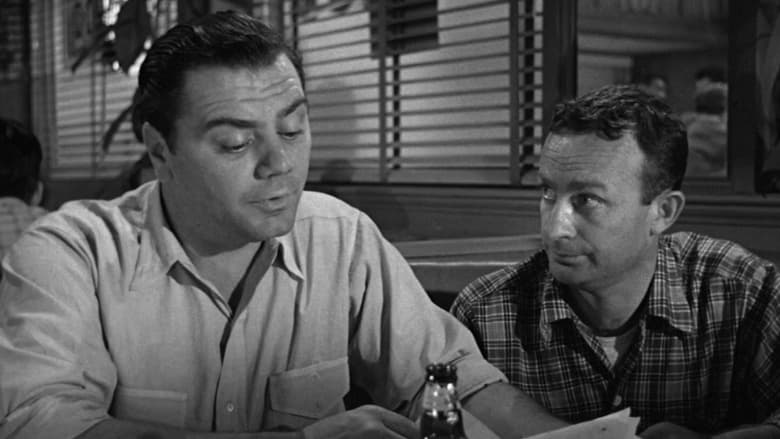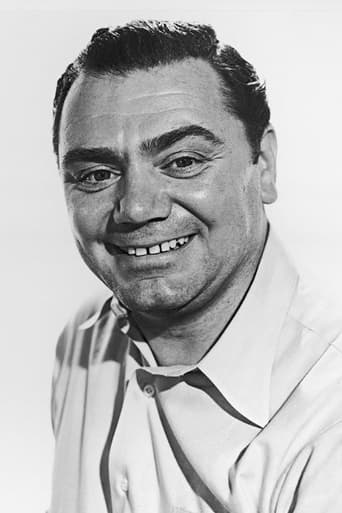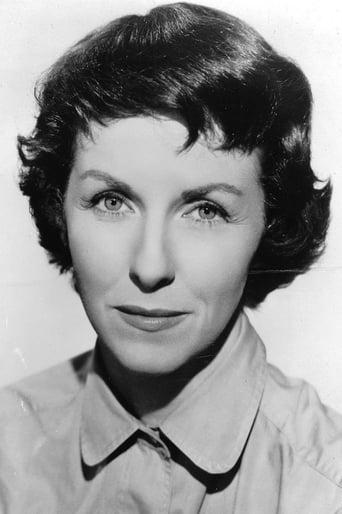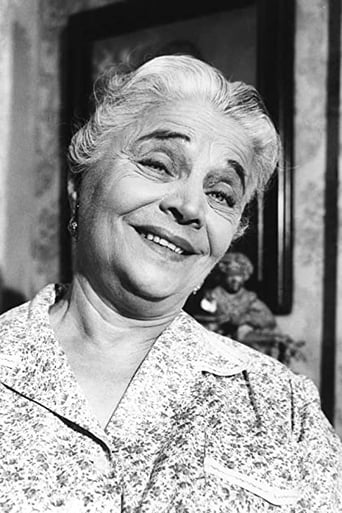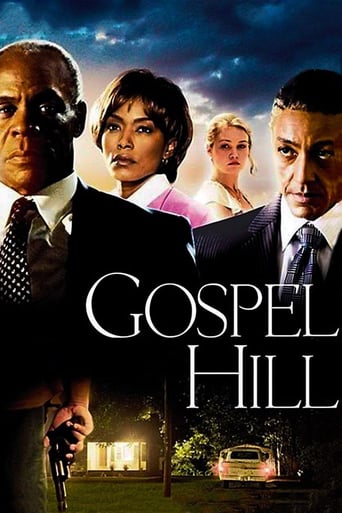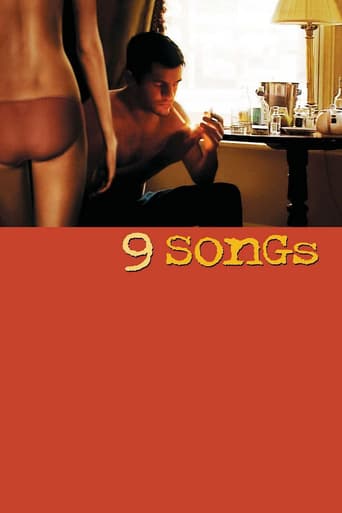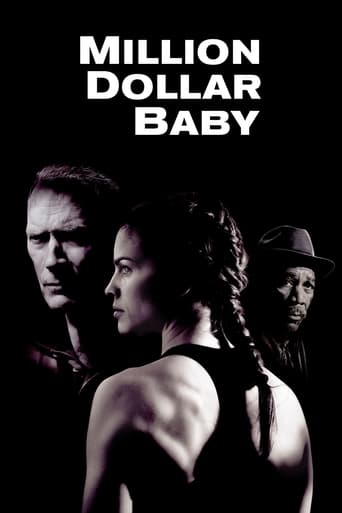Marty (1955)
Marty, a butcher who lives in the Bronx with his mother is unmarried at 34. Good-natured but socially awkward he faces constant badgering from family and friends to get married but has reluctantly resigned himself to bachelorhood. Marty meets Clara, an unattractive school teacher, realising their emotional connection, he promises to call but family and friends try to convince him not to.
Watch Trailer
Cast


Similar titles
Reviews
Do you want your heart warm & toasty? How about a feel good movie that takes you for a journey through human nature up close & personal? Love, friendship, life, work, companionship, intimacy, parents, marriage, and all the normal life problems with solutions presented here for your viewing enjoyment. Who hasn't had some of the thoughts or experiences depicted in this movie? No one and that is what captures you right away. You could be any one of the characters in this movie that's how down to earth it is. Perfect part for Ernie Borgnine too who plays Marty the guy who is just out of luck when it comes to love and purpose but has everything else which fulfills and at the same time reminds you that something is missing. There are so many well directed and acted out scenes that make this a movie that one wants to watch over & over again. I have seen it 20 times and I am not through either. It captures the mood and time of that era and place that enables one to relate to it all without missing a beat. The main points of the movie are delivered up right away too with the remaining part of the film supporting all the premises. We go up and down and identifying with Marty, the lead player is not hard. He wants love but doesn't know what it is or how to go about it and from what he does understand, it just doesn't work for him. His agony is so heartfelt that it is like a cry to the Universe for help and it comes, but not in ways expected. That is what makes it so potent and memorable. There is an especially good scene with Marty and his ma and he is eating dinner that is so well acted out not just for the wanting a plate of your own but for the deep emotions and expressions with no resolutions but also no surrender either. Nice little glimpse into the Italian culture of the time too. Highly recommend a meal while watching, definitely a dessert or snack with a tasty drink and let this little gem go to work on you. It will! Enjoy Hey Marty...whadda you want to do tonight...I dunno whaddaya want to do?
On its release in 1954, MARTY was feted by critics and audiences alike as an accurate portrait of a certain strand of working-class life in New York at that time.Shot in and around the Bronx, Delbert Mann's cinematic rendering of a play that had already been a success on television captures a world long past, of small shops, seedy bars, and crowded streets, where people could walk out at all times without fear of being attacked or molested. Although comprised of different ethnic communities, everyone managed to get on with one another, even though there was not much recreation except to go to the dance-hall every Saturday night.Produced by Burt Lancaster, MARTY brings familiar television techniques to the big screen. Much of the action unfolds in a series of close- ups, two-shots, and tracking shots, focusing our attention on the relationships between the protagonists. One particularly memorable sequence occurs when Marty (Ernest Borgnine) meets Clara (Betsy Blair) in the dance-hall. The two of them smooch to the sound of the music; as they do so, they move through 180 degrees, so that we can see their faces as they hang on one another's shoulders. Their sense of self-doubt is palpable; although they force themselves to smile at one another, their happy expressions are only skin-deep; the frown soon returns, as if they are not quite sure about what they are doing.In Marty's case, such doubt is justified. Living with an over- protective mother (Esther Minciotti), he frequently submits to her authority, even when it is to his personal disadvantage. Director Mann emphasizes his isolation in one sequence taking place at night, where he walks morosely across the frame, his face turned to the left of the camera as he smokes a cigarette. He completely ignores his mother, as if unwilling to say anything to her.Likewise Marty is inhibited by the need to sustain a front of aggressive masculinity in front of his drinking buddies, all of whom describe women in derogatory terms as "tomatoes" or "dogs," depending on their moods, and spend much of their time at dance- halls as professional wallflowers, gazing at but not committing themselves to any women in particular. In the film's closing sequences Mann shows how Marty is hemmed in, both verbally as well as physically, as he sits in a small room, yearning to escape from his friends but lacking the gumption to do so. The ending comes as a surprise, at Marty at last detaches himself from his leech-like "friend" Angie (Joe Mantell), and phones up Clara, closing the door of the public telephone behind. Symbolically speaking this is an important moment, showing how Marty has at last managed to put an emotional as well as a physical barrier between himself and his buddies.The production admirably captures the claustrophobic nature of Marty's life, as he moves between his cramped family home, to an overcrowded bar. Likewise Clara has to share a small apartment with her father and brother, and endure the torment of watching nighttime television where the audience laugh hysterically while her face remains mask-like and emotionless.Mann's film might have a sentimental ending, but it vividly captures the everyday sexism and the apparently inflexible codes of masculinity and femininity that inhibited rather than promoted interaction between the sexes during the mid-Fifties. As a sociological document, as well as a piece of heartwarming entertainment, it cannot be bettered.
Very good movie first time I have ever seen at I like how throughout the whole movie everyone is telling Marty he needs to get married and have a girlfriend and get a life and the time he actually goes out and does this everyone seems to turn on him and tell him she is no good the reasons she's no good is for petty differences of opinions from other people and this is why these people look down on her perfume she is not good for Marty it's good to see how somebody could get over their fear whatever it may be in learn or bring out the tools they need to achieve what they want to and not be scared about what the outcome maybe very good movie definitely worth watching for the first time
Despite having only the most basic of story-lines, this is a nicely-crafted movie with a worthwhile story. The story goes beyond the surface of gloss and superficial beauty to the heart beating underneath. The film stars an admittedly unattractive person, and deals with his feelings of loneliness and insecurity. The story also shows that it is just one person you need, to peek at the good heart you carry. That's when the world goes upside down for Marty. We see Marty as he appears on the surface, then Mr. Borgnine peels away layer after layer, like an onion, revealing the real Marty deep inside. He calls himself "a fat, ugly man" but he has the most beautiful heart in the world. The supporting cast is first rate, especially Betsy Blair as the plain-jane Clara Snyder. The film explores so many issues, how people can ruin another person's happiness, how ideas and perceptions can change everything in a person's life. I cannot imagine this film being made today. Whenever they try to make films about "plain people" they end up trying to make Michelle Pfeiffer and Al Pacino look plain. It just doesn't work. This is a film of beauty, heart and soul.

